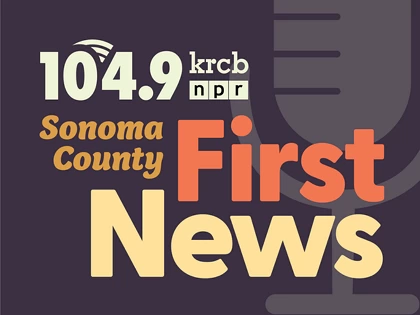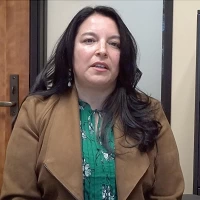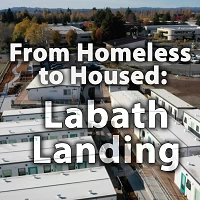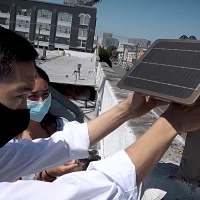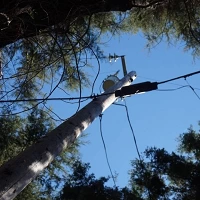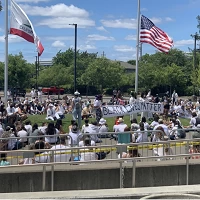 Commentary by Ana Lugo, founder, Equity First Consulting
Commentary by Ana Lugo, founder, Equity First ConsultingCultural responsiveness is the ability to learn from, relate respectfully to, effectively adapt to, and serve all peoples and cultures.[1]
Let us be clear. The systems and institutions designed to serve the public are not culturally responsive. That failure causes additional, unnecessary harm and illness to people and cultures not fully represented in the leadership of these systems and institutions. Even when individuals who identify with underserved communities serve in a single leadership position, their relative isolation within leadership structures creates an unsustainable imbalance, but not a paradigm shift.
The need for this opening, this shift, is more urgent than ever as we navigate the new reality. To protect the lives of people of color in front-line roles during this pandemic, we must move to hold these institutions and systems accountable to address the unique and critical needs of these same people not represented in their leadership ranks. Communities of color hold the same value as white communities and are entitled to the same rights, supports, services and protections provided by these public institutions and systems.
Building culturally responsive frameworks within these systems and institutions takes operationalizing equity through clarity, intentionality, understanding, and respect of these cultures and recognizing the assets and values in every community. In what workplaces and industries are people getting the virus? How do we best support them to protect themselves in areas of higher risk? How do we ensure the burden to require protective equipment be worn be placed on institutions that have true authority, responsibility, and highest impact? Where do people gather? To whom do they listen and trust? What are the best strategies for successful outreach and connection? What do these strategies and tactics look like? Who are the members of these communities who are skilled in designing and delivering them? Who participates in the decision-making process of these efforts?
Unless these answers are sought from these communities themselves, our institutions will continue to fail the people they claim to be attempting to serve. Let me tell you right now —most English-speaking white people cannot answer these questions without the true partnership and recognized leadership of members of these communities themselves. Equity through culturally responsive actions must include the perspective, expertise, and collective knowledge of the communities most severely impacted by the lack thereof.
These same institutions have created a false dichotomy between reopening the economy and protecting low-income communities of color as they continue to serve on the front lines of this emergency effort. Reopening the economy will not ensure that low wage workers can pay their rent and put food on their tables. Reopening the economy with no equity lens firmly placed on the thoughtful policymaking required at this critical moment will do one thing only: create more illness, pain, suffering, and hasten the imposition of additional restrictive measures.
It is false that we are serving our community by posting guidelines on a website. It is false that we are protecting our health care workers by allowing each employer to decide how it will ensure profits over the health of all workers on the front lines. It is false that public health is an individual’s responsibility. It is false that our policy makers are benevolent by allowing the wine and restaurant workers to go back to work. It is false that communities of color are getting sick solely because they live together, and it is most certainly false that all we require is education for these communities. These are all false. The truth is that we are continuing to reinforce racism with every single one of these actions.
The economy must reopen. We must continue to live safely, run our businesses and do our work. AND before we do that, we must ensure that the people on whose backs millions of dollars of profits are made, are protected. Health care workers, farm workers, restaurant workers, store workers, child care workers, cleaning services workers, domestic workers, students, teachers, parents –they are all entitled to safe working conditions, and until we have planned for that and ensured such, we cannot attest to the fact that we are ready to continue forward in the reopening process.
We now know that Latinx folks are 4.5 times more likely to contract the virus. We now know that our brown children account for 95 percent of the 0-17 population who have contracted the virus.
This knowledge should allow us to truly see the clear and deeply disturbing outcomes of the inequities within these institutions and systems.
Now, we must focus on developing clear and thorough plans that commit to immediate culturally responsive policymaking and service provision. These include:
☐ We must create clarity and enforcement around Protective Personal Equipment (PPE) and worker-to-worker physical distancing requirements for all employers.
☐ We must have sufficient testing and screening capacity for all front-line workers, including specific strategies for reaching and serving non-English speaking workers.
☐ We must sensitively gather and publish demographic information about people who have tested positive for COVID-19, including job industry, type of position, zip code (SF has done this). This will help with identifying types of need and resources required to support vulnerable populations.
☐ We must provide culturally responsive and sensitive isolation support. People need to feel safe. Dominant culture design is not adequate to properly serve underserved communities.
☐ We must commit to design responsive actions in a culturally conscious approach based on demographic data collected.
☐ We must have increased communication with and action on feedback from the Latinx and indigenous communities’ leaders. This includes having shared language.
☐ We must advocate at the state and federal level in support of communities of color. The county alone cannot provide appropriate support to these communities. Local leaders need to stand in their power and advocate for these communities just as they have for homeowners through the devastating fires.
☐ We must direct the sheriff and police departments to equally police violators of health orders of all races (i.e. not just unmasked individuals but employers who are violating PPE requirements) – especially in light of our numbers, a logical reaction is to focus on policing sick people instead of going to the root of why people are getting sick – that is a perfect equity problem. Policing sick Latinx and indigenous individuals will actually be detrimental to their health and public health, AND that is not the root cause of the issue.
☐ We must assist small business to access cleaning supplies, PPE, hand sanitizer, and plexiglass.
☐ We must provide and/or advocate and collaborate to create zero interest loans for small businesses to safely modify operations with a focus on Latina and women of color-owned businesses – these entrepreneurs are the drivers of economic growth and the solution to our recovery.
[1] Adapted from the National Center for Culturally Responsive Educational Systems definition.
Ana Lugo is founder of Equity First Consulting, a firm dedicated to creating social change through design and implementation of meaningful community engagement, strategy building, leadership development, and program redesign to achieve equity and belonging.
Responses to this commentary are welcome. Please write to

 Live Radio
Live Radio




